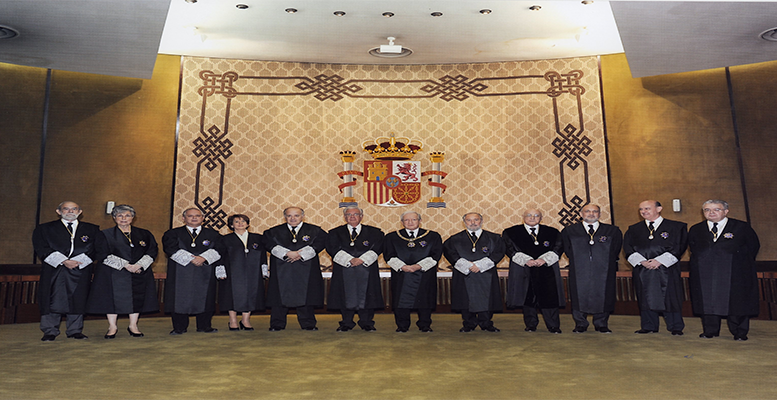Fernando González Urbaneja | This is what the government spokeswoman might say now – what the hell is this separation of powers? – about the appointment of two members of the Constitutional Court, a government quota, in favour of two former high-ranking officials with direct socialist affiliation or sympathy.
Minister Bolaños, who is dealing with the matter on behalf of and with the confidence of Prime Minister Sánchez, argues that the appointees meet the requirements of suitability demanded by law. Moreover, he points out that they differ little from the members they are replacing, appointed at the time by the Rajoy government.
And Mr Bolaños is right in his argument, they are appointments of such and such, very equivalent, people close to the executive power, perhaps independent in their judgement, but with the appearance of being sympathetic or very close to the government’s thesis. In this case, there is an aggravating factor: the recent links of both with proposals and decisions on legislative proposals that will place them, in due course, at risk of abstention when dealing with legislation with which they may be linked.
At the heart of this issue is the determination of political parties to colonise the institutions that should make the separation of powers a reality with like-minded people who are sympathetic to the theses of one of the parties. Each government tries to evade the oversight role of the Constitutional Court.
The other barrier that is blowing up is that of the revolving doors, the ease of transit between different interests and powers. It is well known that the back and forth from the judiciary to the executive, or the other way around, has only brought conflicts of interest and problems (even if only in appearance) which have never benefited the quality of democracy and political cleanliness.
The merits of the two appointees are certain, perhaps sufficient, but in a blind list of candidates of merit for the responsibility of interpreting the Constitution they are not likely to be at the top of the list. Not even in the list of suboptimal nth percentiles.
Invasion, disqualification, provocation of the judiciary is one of the tendencies that will characterise this government when it stands the test of history. Low legislative quality, resistance to control. Highly questionable belief in the value of the separation of powers and respect for institutions. In short: what the hell is this separation of powers?
(*) Sánchez’s government chooses ex-minister Juan Carlos Campo – the one who processed the pardons of the independentistas – and Laura Díez for the TC – a former high government official – for the Constitutional Court.





